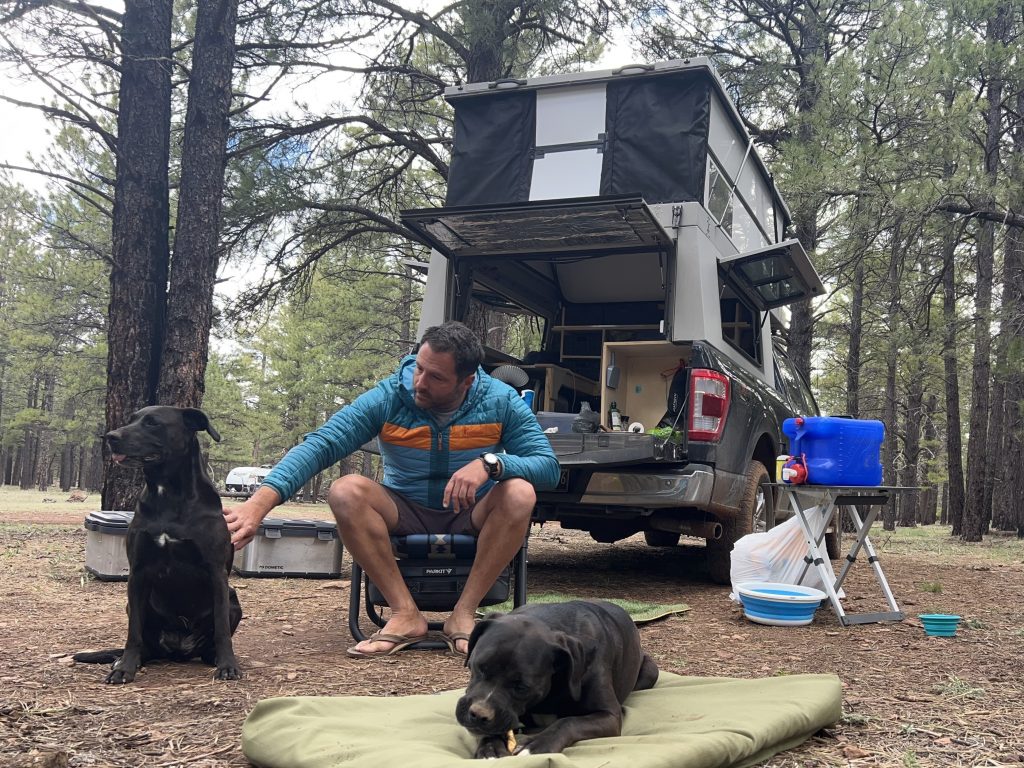News
Veterans could be among the first to feel the pain of a debt default
By: Quil Lawrence | Dustin Jones | NPR
Posted on:
WASHINGTON (NPR) — For Navy veteran Jesse Reynolds, it’s personal.
Veterans funding is currently a key part of two high-stakes showdowns in Washington: budget talks and the possible default on America’s debt. If the U.S. defaults, as soon as June 1, the Department of Veterans Affairs could be short of cash. And that means Jesse Reynolds could be broke on the first of the month.
“Money is pretty tight these days,” he said by phone, driving from Utah to Arizona with his two dogs in the truck he calls home.
“This last year-and-a-half has just been trying to find myself again, trying to just keep myself alive, and get back into the world,” he said.
Reynolds served 14 years in the Navy, until a head injury cut short his time with a SEAL team. He’s been taking online classes and living in the pop-up camper on the back of his pickup. His only income is the monthly disability check from the VA.
“I didn’t have any money coming in. I would just, I guess, sell everything and just hope I have enough to feed the dogs. Maybe get two bags of dog food — one for them, one for me,” he said with a dark laugh.
Patrick Murray, legislative director for the VFW says it’s uncharted territory for veterans.
“A lot of people have been asking, ‘What does this mean for me? What does this mean for my benefits?’ And our first answer is, ‘We don’t really know because we’ve never had this happened before,'” he said.

The government hasn’t defaulted previously
The U.S. government has never defaulted. But if Congress doesn’t raise the debt ceiling, Treasury Secretary Janet Yellen has warned that money could run out as soon as June 1.
If it does, that could mean late checks — and troops and veterans missing rent or mortgages or car payments. And it could hit the people who serve those veterans, said Murray.
“It could affect the pay of federal workers who process VA claims, or the VA doctors and nurses,” he added.
Murray says he hopes the debt ceiling isn’t being used as a bargaining chip in the other showdown, where Republicans are trying to cut the budget.
Republican House Veterans’ Affairs Chairman Mike Bost has repeatedly said he will not allow veterans funding to be cut. Bost is a veteran himself and said Democrats and the White House are scaring vets for political gain.
“With no regard for the impact of their words, they continue to speak lies about how House Republicans are cutting veterans benefits, and it’s false,” Bost said recently.
But this week House Republicans put out a bill that keeps veterans funding level, but moves about $15 billion from a massive new program to help veterans suffering from toxic exposures and makes it discretionary funding.
Allison Jaslow with Iraq and Afghanistan Veterans of America said that means it can be cut when it comes up for renewal annually.
“Veterans have gotten a lot of lip service. We’ve been told that through negotiations that veterans funding isn’t on the table. The problem is we haven’t gotten those guarantees in writing at this point,” said Jaslow.
Which leaves vets like Jesse Reynolds still worried as he drives his truck to his next camping spot for the night.
“We’re kind of expendable I guess. It is terrifying to know that I could be struggling more than I already am really soon,” he said.
9(MDU1ODUxOTA3MDE2MDQwNjY2NjEyM2Q3ZA000))

